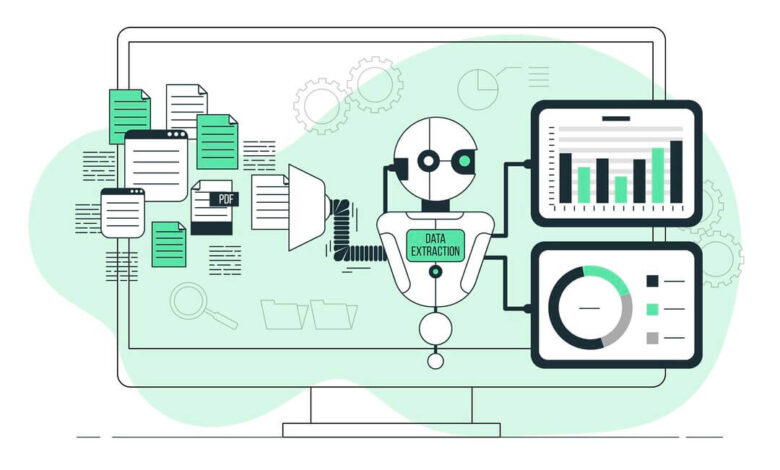Top AI Testing Tools To Simplify Your Automation Workflows

In the fast-paced world of software development, organizations are using AI testing tools increasingly to make their automation workflows more simple. These tools increase the efficiency and quality of software testing.
Cloud computing has offered the testing landscape to be accessible and scalable while allowing teams to deliver applications of quality much more quickly.
Why Is Automation Important In Testing Workflows?
Automation is critical in testing workflows for several reasons. First, the time that is spent on mechanical or repetitive activities such as regression testing is drastically reduced. This frees up teams to work on more complex scenarios that require insight beyond human capacity; thus, productivity is improved.
Secondly, automated tests will provide consistent results with less human error, thus ensuring that software works as expected across different environments.
In addition, automation supports continuous integration/continuous development (CI/CD) processes, allowing testing to be performed repeatedly as soon as every code change has been made.
This immediate feedback cycle will catch bugs early in the development process rather than later when it might be expensive and time-consuming to rectify. With the application of automation to the workflow, an organization is guaranteed faster release cycles with no compromise on quality.
What Are AI Testing Tools?
AI testing tools are applied software solutions whose aim is to embed AI and Machine Learning (ML) to automate many tasks involved in the testing process. They are to quicken the test process since they avoid repetition, process large volumes of data, and predict what may happen in case things do not work.
AI testing tools, such as test case generation, test execution, and result analysis, can support some tasks.
Using AI-driven approaches, these tools can adapt to changes in the application under test, learn from previous testing cycles, and optimize test coverage. This adaptability thereby maintains an excellent quality level while accelerating their development cycles.
In this regard, AI testing tools represent a necessity for teams looking to improve their software quality and delivery speed.
Types of AI Testing Tools
Testing tools for AI can be categorized based on functionality and application areas. Here are some types of AI testing tools:
- Functional Testing Tools: Functional testing tools validate the functionality of an application based on specific requirements. They ensure that all features are working as intended.
- Performance Testing Tools: Performance testing tools check how an application functions under different conditions, such as loading and stressing scenarios. The bottleneck and scalability are confirmed.
- Visual Testing Tools: Visual testing tools test the appearance of an application on various devices and screen sizes. These tools check User Interface (UI) anomalies that can prevent a positive user experience.
- Application Programming Interface (API) Testing Tools: API testing tools test the functionality and API performance of applications. This is to ensure that data exchanges between systems run automatically.
- Cloud Testing Tools: A cloud testing platform uses cloud computing resources in support of software application testing across different environments and devices. This helps an organization to efficiently replicate real-world use scenarios, ensuring a scalable solution that is flexible and can save money at the testing stage.
- Mobile Testing Tools: Mobile testing tools are best suited for testing mobile applications on various devices and operating systems.
Key Open-Source AI Testing Tools And Platforms: Tools To Simplify Your Automation Workflows
Here are key open-source AI testing tools from varied categories with their benefits:
Selenium
Selenium is one of the widely used open-source functional testing frameworks to automate web applications, which supports more than one language and helps test writers write their test scripts in any of the preferred languages.
This provides cross-browser compatibility for seamless test execution across various browsers, integrates with TestNG and JUnit for improved test management, and has a robust community support system for continuous development and resource provision.
Selenium is dear to testers who require a reliable tool for web application testing due to its flexibility.
Robot Framework
Robot Framework is an open-source, keyword-driven functional testing automation framework that widely uses its keyword-driven approach. It is largely used in web and desktop automation and is versatile since it supports varied libraries and tools.
The tool offers keyword-driven testing, library expansion with Python and Java, and cross-platform support for testing web, mobile, and desktop applications, making it accessible to non-programmers.
Robot Framework’s flexibility makes teams work well together on automation projects as it caters to both technical and non-technical team members well.
JMeter
Apache JMeter is an open-source performance testing tool. The tool is widely used to test the load of functional behavior and to measure performance metrics under varying types of loads on any web application.
It offers load testing, extensive protocol support for various protocols, and comprehensive reporting on performance metrics like response times, enabling users to evaluate server performance under various conditions.
JMeter’s reliability makes it a must-have tool for any organization that wants to ensure its applications handle predicted volumes of usage properly.
BackstopJS
BackstopJS is an open-source visual regression testing application that helps developers ensure that web applications have visual consistency.
It offers automated visual comparisons for web pages, easy setup for teams, and integration capabilities with CI/CD pipelines for automatic identification of visual discrepancies in the test results.
BackstopJS enables the preservation of UI consistency by making the visual discrepancies visible during the development phase.
Insomnia REST Client
Insomnia is a strong API client that simplifies the testing of REST and GraphQL APIs. It has a user interface that supports a range of features to be associated with better development.
Insomnia is a tool that allows users to manage various environments, group related API calls into collections, and generate code snippets in multiple languages for quick application integration. It supports various authentication methods such as OAuth 2.0, Basic Auth, and API keys for getting secure access to APIs.
The plugin system allows users to add custom-built functionalities to their workflows, thus allowing them to customize their application’s functionality to meet specific workflow needs.
Overall, Insomnia serves developers with a comprehensive and flexible solution aimed at providing an effective tool for API testing and development that is free from proprietary software constraints.
Appium
Appium is an open-source software built particularly for automating mobile applications over both Android and iOS platforms.
It offers cross-platform testing for Android and iOS devices, eliminating the need for code modifications and requiring no recompilation, allowing for testing mobile applications in Java, Python, Ruby, and beyond.
Due to its flexibility in mobile environments, Appium is an essential tool for organizations focused on mobile app development.
LambdaTest
LambdaTest stands apart as a single all-encompassing cloud-based platform offering vast features for enriching automation workflows to a great extent, especially in cross-browser compatibility testing and AI testing.
LambdaTest allows teams to run automation tests on reliable cloud infrastructure using multiple frameworks like Selenium, Cypress, Puppeteer, Playwright, and Appium. The flexibility to choose the best-suited framework for the team only adds to the strength of the environment that LambdaTest provides, making it easy to integrate with any existing workflow.
It assures cross-browser and app compatibility testing with over 3000 mobile and desktop environments with instant access. It ensures that applications perform optimally across various devices and browsers for better user satisfaction and experience in today’s multi-device world.
One of the most unique features of the LambdaTest is that it supports auto-healing, which greatly helps overcome flaky tests. The tool automatically recovers from certain failures without any manual intervention and significantly reduces time spent on downtime for testing processes and the overall reliability of tests.
By integrating LambdaTest into your automation workflows along with these open-source tools, you’ll enhance test reliability while maintaining high-security standards.
Its cloud infrastructure allows teams to scale their testing efforts effortlessly while ensuring comprehensive coverage across various environments. This makes LambdaTest an invaluable asset for organizations that are looking for ways to streamline their testing processes and improve software quality.
Benefits of Using AI Testing Tools
There are many benefits of an organization adopting AI testing tools:
- Improve Productivity: The automation of repetitive tasks opens up the room for teams to attend to bigger issues that require human insight. Improving productivity not only but also improves tester job satisfaction when they can do more meaningful work.
- Zero Error: The AI algorithms remove the human error that can contribute during the execution of tests because of their consistent action following predefined rules. This gives out more accurate outcomes and determines bugs that could be left unnoticed through manual testing.
- Faster Feedback Loops: The rapid detection of bugs leads to faster turnaround times. This is integral in agile development environments where speed truly matters. Teams can now iterate quickly using user feedback or internal reviews without jeopardizing release timelines.
- Improved Collaboration: Cloud-based tools make it possible to collaborate and work from anywhere. This collaboration promotes innovation since team members can share insights and strategies in real-time, regardless of geographical barriers.
- Cost Savings: By automating manual work, organizations cut the operational costs incurred while carrying out software testing operations. Investments in AI tools often pay off quickly because teams can release products faster with fewer defects.
The Future of AI Testing Tools
AI testing tools in the future will undergo tremendous evolution; complexity in software applications, speed, and reliability through efficient testing are some of its drivers. Technologies, such as predictive analytics, self-healing systems, and intelligent automation, will advance the capabilities of these tools, making them test issues autonomously, generate accurate test cases, and adapt changes in the software environment, depending minimally on manual intervention.
The depth of insightful analysis in testing data provided by evolving AI algorithms would allow for better risk management and solve issues more proactively. Moreover, the incorporation of ML techniques would make test development and maintenance much easier, as it reduces the number of tedious human tester effort points.
It promises high efficiency and accuracy but also places AI testing tools as must-haves in modern software development. This ensures quality applications that can meet the market’s fast-paced demands.
Conclusion
In conclusion, AI testing tools can greatly make software development processes simpler when open-source solutions like Selenium or Appium are used. Also, LambdaTest is a powerful platform that enhances automation capabilities through the feature of cross-browser compatibility testing.
Organizations can successfully create a rich testing environment with the help of popular open-source tools like Selenium Appium and LambdaTest. This will ensure comprehensive coverage across thousands of environments while supporting the demands of modern software development.
Open-source AI testing tools offer flexibility and accessibility, ensuring cross-browser compatibility testing across various environments. When combined with Selenium or Appium, they promote efficient automation workflows, enhancing productivity and quality output. Integrating AI-driven solutions can revolutionize software testing, making it faster, smarter, and more efficient.







